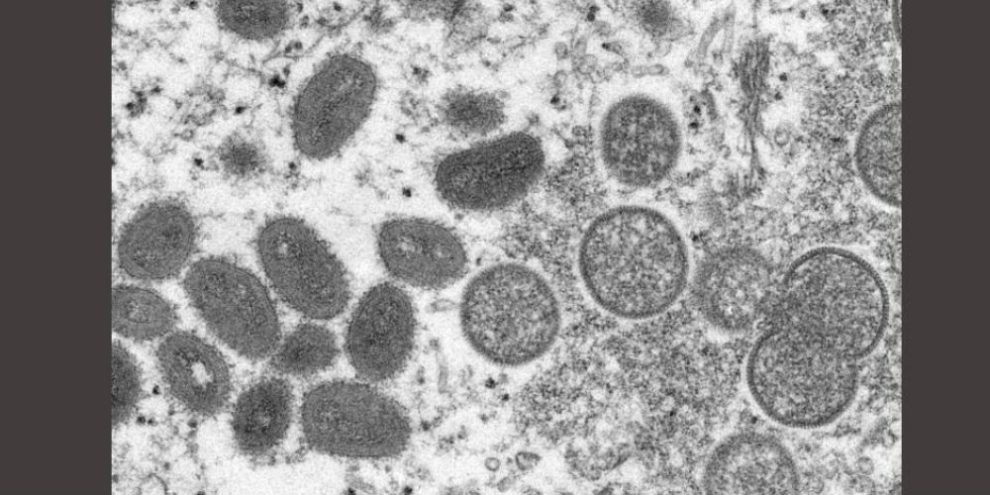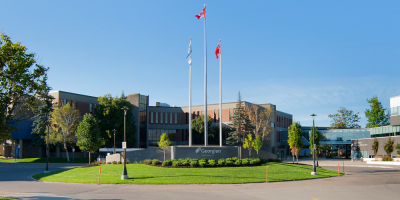
By Adina Bresge
Some provinces say they're keeping watch for monkeypox as the Public Health Agency of Canada has confirmed the first two cases in the country, both in Quebec.
The agency says it is working with the United States Centers for Disease Control and Prevention, and public health officials in Quebec to investigate potential exposure and contacts of a case of monkeypox recently identified in the U.S.
Quebec's Health Department says 20 other suspected cases are under investigation.
But health authorities are assuring a pandemic-rattled population that the risk posed by the virus is low.
The disease is typically limited to Africa, but a number of European countries have reported small outbreaks in recent days, and one case has been identified in the U.S.
WHAT IS MONKEYPOX?
Monkeypox is a rare disease caused by a viral relative of smallpox. The name of the illness originates from its 1958 discovery by scientists who observed two outbreaks of a "pox-like'' disease in research monkeys.
The disease is zoonotic, meaning it's caused by germs that spread between animals and people. The first known human infection was documented in 1970 in a nine-year-old boy in a remote part of Congo.
Most human cases have been in central and west Africa, where the disease is endemic. Isolated infections are occasionally spotted outside Africa, including in the U.S. and Britain. The cases are typically associated with travel to Africa or contact with animals from areas where the disease is more common.
WHY ARE AUTHORITIES MONITORING IT?
It's the first time monkeypox appears to be spreading among people who didn't travel to Africa.
In Europe, infections have been reported in Britain, Italy, Portugal, Spain and Sweden. On Wednesday, U.S. officials reported a case of monkeypox in a man who had recently travelled to Canada.
There's a "strong possibility" that the 17 infections in the Montreal area are linked to the virus, but the cases have yet to be confirmed by a laboratory, local public health official Dr. Mylène Drouin told reporters Thursday.
Drouin said the first cases in Montreal were reported on May 12 from clinics specializing in sexually transmitted diseases, adding that the cases are tied mostly to men who have had sexual relations with other men.
WHAT ARE THE SYMPTOMS?
Most patients only experience fever, body aches, chills and fatigue. People with more serious illness may develop a rash and lesions on the face and hands that can spread to other parts of the body.
The incubation period is from about five days to three weeks.
Most people recover within about two to four weeks without needing to be hospitalized. The disease can be fatal for up to one in 10 people and is thought to be more severe in children.
HOW DOES IT SPREAD?
Drouin said the disease is transmitted by prolonged close contact and by droplets, adding that there is no risk from activities such as taking public transit, eating at a restaurant or shopping.
Although most suspected cases were likely acquired through sexual activity, monkeypox is not considered a sexually transmitted disease, she said, adding that "we don't want to stigmatize one particular community.''
HOW CAN MONKEYPOX BE PREVENTED OR TREATED?
People exposed to the virus are often given one of several smallpox vaccines, which have been shown to be effective against monkeypox. Anti-viral drugs are also being developed.
The smallpox vaccine protects against monkeypox with more than 85 per cent efficacy, the Public Health Agency of Canada wrote in a 2010 document on pathogen safety. The agency noted, however, that the end of smallpox vaccination may have increased people's susceptibility to severe monkeypox.
Canada wound down its smallpox vaccination programs in the 1970s.
Dr. Geneviève Bergeron, Montreal's medical officer for health emergencies and infectious diseases, said some people who received the smallpox vaccine as children may have a better chance of battling monkeypox. Drouin said decisions about vaccines would be made at the federal and provincial levels.
WHAT'S THE RISK IN CANADA?
Drouin said there are likely other cases in Montreal that haven't been identified, and she called on people who are showing symptoms of the disease to contact a doctor. Still, she urged people to remain calm.
"We do not have to panic," she said Thursday. "At the time that we are speaking, it is not something that is going to go to community transmission that is going to be sustained."
Health officials in Ontario, Manitoba and Alberta said no monkeypox cases had been identified in either province as of midday Thursday, but they're working with federal counterparts to monitor the situation.
"We want to reassure Ontarians that the risk for monkeypox is low," health ministry spokesman Bill Campbell said in an email.
— with files from Sidhartha Banerjee in Montreal and Associated Press
Banner image: This 2003 electron microscope image made available by the Centers for Disease Control and Prevention shows mature, oval-shaped monkeypox virions, left, and spherical immature virions, right, obtained from a sample of human skin associated with the 2003 prairie dog outbreak. .THE CANADIAN PRESS/Cynthia S. Goldsmith, Russell Regner-CDC via APAP Third Party
This report by The Canadian Press was first published May 19, 2022.






